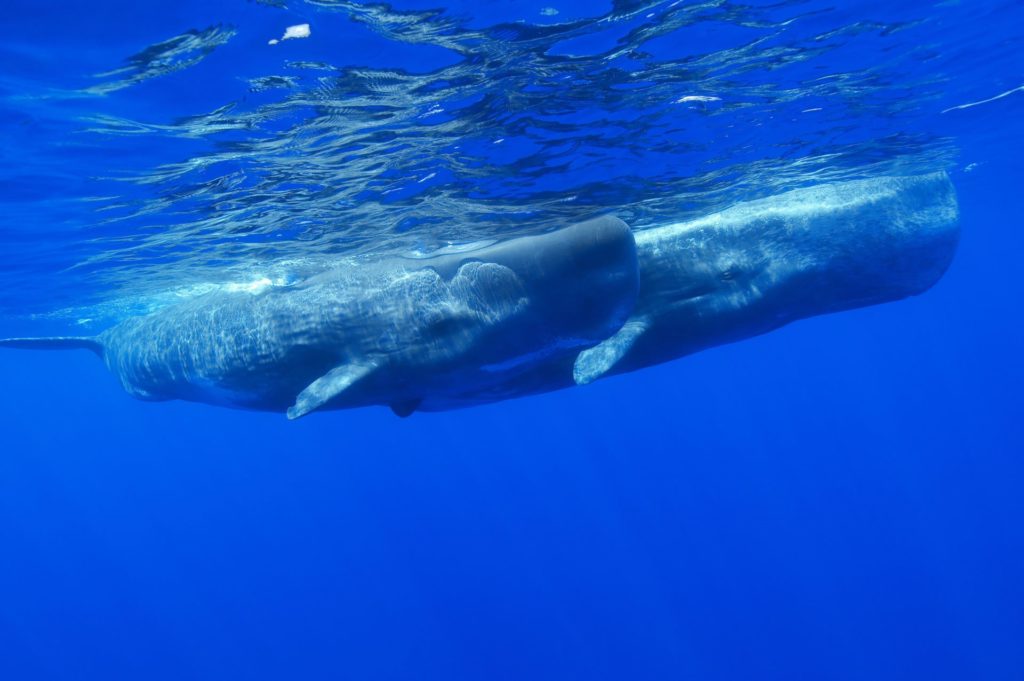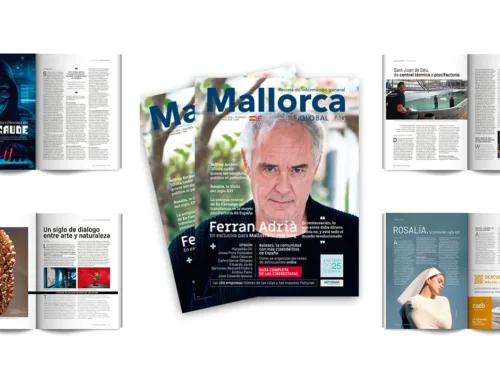
Whale making its migratory transit. Photo: OceanCare.
The intense marine traffic in the Mediterranean caused by passenger ships, freight transport and all types of boats cause high levels of underwater noise that endanger whales and dolphins.
Thanks to the Cetacean Migration Corridor Management Plan, Spain can become a world pioneer in fighting climate change and underwater noise with measures that can help reduce the climate footprint of maritime transport.
“Spain has in its hands a unique opportunity to reduce underwater noise emissions in a quantitatively significant way and transform an area with a high intensity of maritime traffic into a silent area for marine fauna. The Mediterranean Cetacean Migration Corridor could become an internationally important example of best environmental practices in a marine protected area “, declared Nicolas Entrup, co-director of International Relations of OceanCare, an international organization for the protection of the marine environment, in a conference. joint press with Alnitak and the Marilles Foundation, held in Mallorca.
The OceanCare report “Silent Waters for Whales and Dolphins” was presented at the meeting. This document is conceived in order to support the Ministry for the Ecological Transition and the Demographic Challenge (MITECO) in the development of the conservation management plan of the Cetacean Migration Corridor, with a particular focus on avoidance measures, reduction and mitigation of underwater noise generating activities.
Recommendations on the monitoring and execution of the plan are included in this report, in order to make it an example of Best Practices in the governance of marine protected areas, which could be replicated in other parts of the world.
“A well-managed and financed Cetacean Migration Corridor will guarantee the conservation and improvement of the populations of these majestic animals, reduce noise and climate pollution and bring us closer to a more sustainable Mediterranean. The Balearic Islands must play a key role for the cetacean corridor to be a success and a world benchmark in marine conservation ”, said Aniol Esteban, director of the Marilles Foundation.
In Royal Decree 699/2018, which declared the protection of the Cetacean Migration Corridor as a Marine Protected Area, the Spanish Government made it clear that avoiding, mitigating and reducing anthropogenic noise under water is one of the central objectives to safeguard conservation of the great diversity of marine species that use this area.
Anthropogenic underwater noise has been identified as a critical pollutant negatively affecting global marine ecosystems in numerous scientific studies. On a global scale, commercial shipping is one of the main causes of underwater noise, especially since about 90% of world trade is carried out by sea.
“It will be essential to carry out an effective management of maritime traffic in the ZEPIM in order to reduce underwater noise and CO2 emissions,” said Carlos Bravo, spokesman for OceanCare in Spain.
In this sense, reducing the speed of ships is, among the different operational measures available, the one that can contribute most profitably to reducing the environmental impact of maritime transport. In fact, this measure makes it possible to reduce, very significantly and with immediate effect, CO2 emissions, atmospheric pollutants such as sulfur oxides, nitrogen oxides, particles and black carbon, as well as underwater noise and noise. risk of collisions with marine fauna. “We are facing a unique opportunity, since a measure such as speed reduction benefits everyone, both the environment, safety at sea and the transport industry itself,” said Ricardo Sagarminaga, director of Alnitak.







Leave A Comment